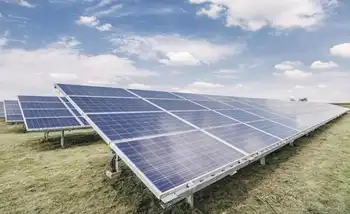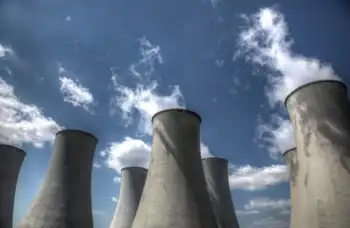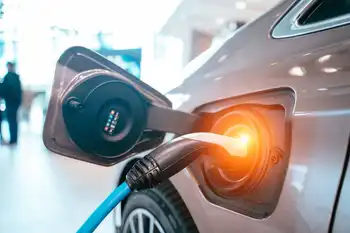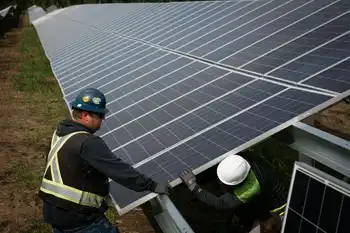Clean energy talks to possibly resume in U.S. senate
WASHINGTON - After taking a months-long break from energy negotiations, senators appear poised to restart debate on some of President Obama's so-called bite-sized pieces of energy legislation.
The "chunk" of energy policy that has gotten the most buzz recently is the proposal for a "clean energy" mandate, which Obama touted high up in his State of the Union speech recently.
The idea would require utilities to generate a certain percentage of their electricity from low-carbon sources, like renewables, nuclear or "clean coal." The president's promotion of such a policy in his prime-time address buoyed the hopes of many environmentalists and renewable energy advocates who had all but given up on seeing substantial energy legislation move through the closely divided Senate or Republican House in 2011.
But such a proposal still has naysayers. And the details are far from finalized.
For one, the White House and Congress have yet to firmly establish which energy sources would be considered "clean" under such a mandate. And Obama's proposal to produce 80 percent of the nation's electricity from clean sources by 2035 is seen by some would-be champions on Capitol Hill as being too aggressive.
It also lacks the full-fledged support of some of the chief negotiators on energy issues in the Senate.
Energy and Natural Resources Chairman Jeff Bingaman, senator for the state of New Mexico, who historically has been opposed to such a measure in favor of mandates limited to renewable energy sources, recently said he was "anxious" to work with the Obama administration and others in Congress to "come up with a proposal that does what the president outlined."
"I never felt it was a bad idea I just haven't seen a concrete proposal yet that I thought was workable and made sense," Bingaman told reporters recently.
Lisa Murkowski, senator for the state of Alaska, the panel's ranking member, likewise has not signed onto the idea of a clean energy standard despite having supported a broad energy bill in the last Congress that included language to create a renewable energy standard that would limit the mandate to renewable sources.
And Obama's proposal could face resistance from more conservative Republicans, who campaigned on limiting government regulation.
But the idea of a clean energy standard does have champions on Capitol Hill. Lindsey Graham, senator for the state of South Carolina, for one, is backing the idea. Once a chief negotiator on sweeping climate legislation, Graham late in 2010 floated language that would have set targets of 25 percent clean energy by 2025 and 50 percent by 2050, targets that Energy Secretary Steven Chu said were viable. Tom Carper, senator for the state of Delaware, and Mark Begich, junior state senator for Alaska, also have noted their willingness to work on a clean energy standard measure in the past. Graham has also said he is working on a measure that would expand access to domestic reserves of oil and natural gas. "I'm trying to come up with a clean energy standard, and also energy independence initiatives," Graham said. "They're not illogical. We have to find more domestic oil and gas, but at the same time we need to be pushing more clean energy, because that's our ultimate break from dependency on fossil fuels." Oil spill, efficiency measures A clean energy standard is not the only energy piece to gather buzz recently.
Recently, Robert Menendez, senator for the state of New Jersey, reintroduced a measure that would eliminate the liability cap for oil companies involved in a spill. The language, which caused dissension among Republicans and oil-state Democrats in 2010, ultimately contributed to the demise of the Democrats' energy package in the summer of 2010.
But after the bill stalled, Menendez vowed to work with some of the measure's harshest critics -- Begich and Mary Landrieu, senator for the state of Louisiana -- to come up with compromise language. Earlier this month when he announced plans to float a new measure, Menendez said he would work with other senators "who have constructive ideas to help it pass."
Such a compromise on liability could resurrect talks on oil-spill response legislation, something Bingaman had listed as a top priority in the final months of the 111th Congress.
Another priority of Bingaman's last year that likely will crop up in energy discussions in 2011 is energy efficiency.
Jeanne Shaheen, senator for the state of New Hampshire, is prepping a package of efficiency measures to float soon, an aide said.
Her legislation will reflect many of the same efficiency priorities as the broad energy bill that passed out of the Energy Committee last Congress. Specifically, the package will address appliance standards and Energy Department loan guarantees, among other issues.
In late 2010, Bingaman listed efficiency as one of his top priorities, along with a renewable energy standard and oil-spill response legislation. His presentation this afternoon likely will reiterate those priorities with the possible substitution of a clean energy standard for the renewable electricity standard.
Energy markets
Bingaman's committee soon will focus on the energy and oil market outlook in a hearing that could have implications on oil and gas policy.
Increases in oil demand in 2011 are expected to keep crude prices rising, which could prompt calls for more domestic production of oil and gas.
Related News

Alberta Faces Challenges with Solar Energy Expansion
ALBERTA - Alberta's push towards expanding solar energy is encountering significant financial and environmental hurdles. The province's ambitious plans to boost solar power generation have been met with both enthusiasm and skepticism as stakeholders grapple with the complexities of integrating large-scale solar projects into the existing energy framework.
The Alberta government has been actively promoting solar energy as part of its strategy to diversify the energy mix and reduce greenhouse gas emissions. Recent developments have highlighted the potential of solar power to contribute to Alberta's clean energy goals. However, the path forward is fraught with challenges related to costs, environmental…




